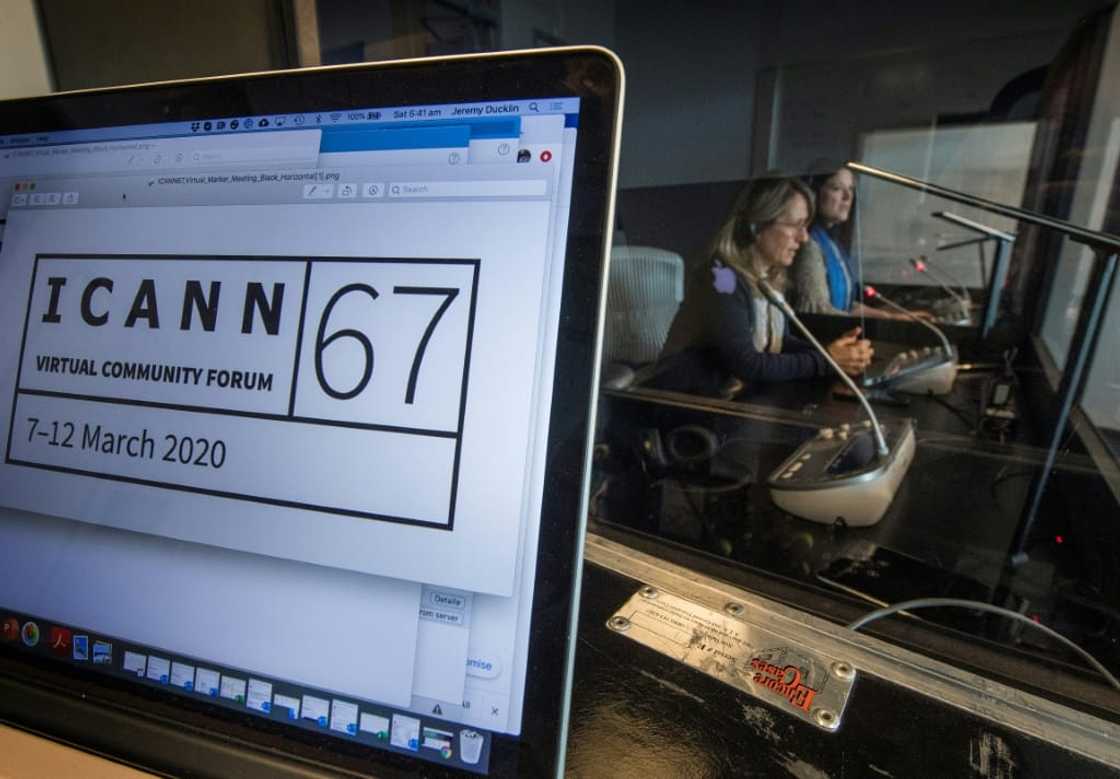Polarized world threatens open internet: ICANN

Source: AFP
After 25 years of keeping the internet strong and stable, the nonprofit ICANN -- responsible for its technical infrastructure -- is warning that increasingly polarized geopolitics could start cracking the foundations of the online world.
"It's super important to differentiate between what countries decide to do with controlling content, as opposed to the technical infrastructure," the Internet Corporation for Assigned Names and Numbers' interim chief executive Sally Costerton told AFP in a recent interview.
"The risk of fragmentation at the technical level is enormous. The foundation crumbles and game over."
ICANN has managed the technical underpinnings of the internet since the group was established in Los Angeles in 1998, and for the past seven years it has operated under an international model that has all "stakeholders" work collaboratively.
"That has worked really well," Costerton said of the approach.
ICANN is best known for its work maintaining and expanding the internet address system to new "domains" and languages from its early ".com" days only employing the Roman alphabet.
PAY ATTENTION: Watch the hottest celebrity stories on our YouTube channel 'Briefly TV'. Subscribe now!
But as online abuses -- from misinformation to hateful content -- have grown more insidious, interest has heightened in giving governments more control of the internet, including aspects that have previously been covered by ICANN.
Shifting control of the internet's infrastructure to governments and trade groups, and shutting out the technical community, could crack its foundation, Costerton warned.
But proposals have been circulating in the United Nations to give governments and trade groups such clout, and such discussions are expected to come to a head in 2025, according to ICANN.
"You start to damage the foundation by changing the way that internet governance model works," Costerton said.
"It looks like a magic trick, but it's the product of hundreds of thousands of people building trust in the technologies and each other."
While ICANN keeps the infrastructure on which the internet operates sound, it has nothing to do with any digital content it supports, the executive noted.
"I can't actually remove something from the internet," the ICANN chief said.
"The other thing is that ICANN is politically neutral, we can't take sides."
Costerton worries that mindset would shift if governments had more control of the internet infrastructure.
She also sees a threat from the unintended consequences of regulation in countries intending to safeguard citizens from what is deemed undesirable online content there.
"The internet was not designed on national borders, it's a global resource," Costerton said.
"The minute you start to decentralize it, you're going to start to create digital islands."
Essentially, the internet could be splintered as countries control what people see online.
"We are living in an increasingly nationalistic, polarized world," Costerton said.
"If you want all that wonderful content, and you want the magic trick to carry on, you must maintain the current trust-based model."
Source: AFP

